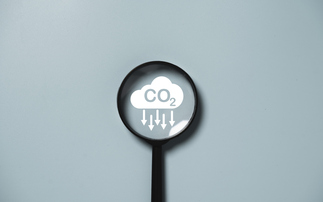Any deal in Paris should find a role for carbon markets if it wants to drive cost effective green investment, argues IETA's Dirk Forrister
The last time we aimed at a new global climate change deal in Copenhagen in 2009, it ended in acrimony and a breakdown of trust. After a concerted effort to rebuild relationships, we find ourselves, six years older and - one hopes - wiser, trying again. This time, the odds of a deal are brighter, with more governments already acting on climate change at home than in 2009 - including a huge growth in the number of emissions trading systems (ETSs) underway or in design.
Governments as diverse as the European Union, Kazakhstan, New Zealand and South Korea already have carbon markets in place, as do several sub-national jurisdictions across North America and China. More regions are planning to introduce or expand pricing mechanisms, recognising that markets are the best and lowest-cost way to price carbon, drive emissions reductions and allow freedom of choice in reduction pathways.
In its 2015 status report, the International Carbon Action Partnership found that 40 per cent of global GDP is now subject to an ETS - a figure that is expected to grow, particularly once China's national market begins next year.
The agreement in Paris can help accelerate this growth. Explicit mention of markets in the final text would embolden those that are still considering options, while recognising efforts already underway. With so many systems in place, it is vital that the future climate change framework account for these reductions.
But Paris can, and needs to, do more than just recognise these markets and their reductions. The future international climate agreement can provide a framework for cross border cooperation that will inspire more to act. This cooperation can achieve even greater reductions faster and cheaper than if all these efforts remain independent of each other. Many of the world's leading economists - including Nobel prize winner Jean Tirole - have urged this type of market-based cooperation as a way of keeping costs in control and inspiring greater ambition.
This notion is at the heart of IETA's straw proposal for market provisions in the 2015 agreement, which we recently updated. Drawing on IETA's work on market linkages with the Harvard Project on Climate Agreements last year, the proposal outlines how a unified international transfer system could work in the future agreement. The streamlined version tweaks the original proposal, which was released at the Lima talks last year, to incorporate elements from the Geneva Text as well as feedback from policymakers and business.
Business will bear a large share of the future action agenda. So our proposal reflects a way forward that will inspire innovation, identify new opportunities and keep costs down for the end user, all while achieving environmental goals. Markets can deliver all of this - but first policymakers need to ensure that there is a place for markets in the agreement, that markets matter to them and the future we want.
The spirit of the Paris agreement should fully embrace the benefits that collaboration can bring - after all, climate change is a global problem and requires a global solution. Markets can provide that global solution and involve all parties so that we can achieve more together than if every nation went it alone. Climate change doesn't have borders, so why should the response?
Dirk Forrister is president and chief executive of the International Emissions Trading Association (IETA)
This article is part of BusinessGreen's Road to Paris hub, hosted in association with PwC








